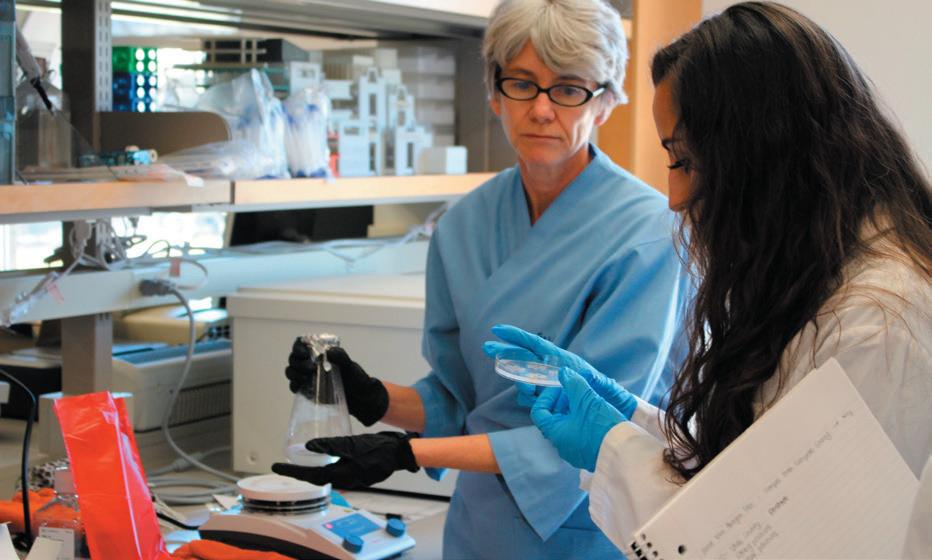
1 minute read
Professor Jeanette Norton Named Fellow of the Soil Science Society of America
By Shelby Ruud Jarman
Jeanette (Jenny) Norton, professor of soil microbiology and ecology has been named a fellow of the Soil Science Society of America (SSSA).
This is the highest recognition bestowed by the SSSA, with members of the society nominating worthy colleagues for this acknowledgment based on their professional achievements and exemplary service.
“The award from the Soil Science Society America means a lot to me because it is a sign of respect and support from my colleagues, including some of the former mentors from throughout my career,” Norton said.
Norton’s research focuses on the roles and impacts of diverse soil organisms.
“The soil is alive with fascinating organisms and their processes – the soil microbiome,” she said. “This living skin of the earth is essential for crop growth.
Agriculture feeds the world’s eight billion people currently, but we need to prepare to feed more people while adapting to a changing climate that disrupts agricultural systems. We are hopeful for a future where we can manage the soil microbiome to maintain and improve crop production while building soil organic matter.”
These are timely topics as scientists around the world work to address soil health and agricultural sustainability in the face of global change. New and emerging technologies have made it possible to study the soil microbiome on a deeper level.
“As a soil microbiologist, I feel incredibly fortunate to have worked through the last three decades at a time when we could use molecular tools such as DNA sequencing and the polymerase chain reaction to open the ‘black box’ of the soil microbiome,” Norton said. “These advances have been amazing, and I have been able to be a part of applying these tools to understand the belowground ecosystem”
Her lab group's research focuses on microbes in soil nitrogen and carbon cycling on different levels; from individual organisms to ecosystem services. Working toward understanding soil health and agricultural sustainability requires finding new ways to interact and collaborate with colleagues and students to address the many challenges of global change. Understanding the roles and impacts of diverse soil organisms remains a challenge and one of her inspirations.
Norton also serves as a graduate program coordinator in USU’s Department of Plants, Soils and Climate. She is dedicated to mentoring both graduate and undergraduate student researchers, with the ultimate goal of promoting diversity in the scientific workforce.
“I really enjoy working with students on research projects in soil health and microbiology,” she said. “Working in the environmental sciences continues to challenge me to find new ways to interact and collaborate with colleagues and students to face the many challenges of global change.” �










